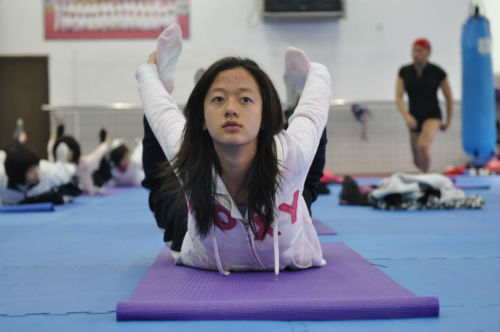
According to Jiang Xueqin, “the gap between the have’s and the have-not’s in China has only widened, and for the sake of domestic stability, President Xi Jinping has to attempt to address this gap through multiple channels.” How can education reform facilitate this?
Jiang Xueqin is an innovative thought leader in education reform in China who first shared his perspectives in The Global Search for Education East vs. مغرب series in August of this year. Jiang is currently deputy principal of Tsinghua University High School, a highly regarded Chinese institution. اس نے حال ہی میں شائع شدہ کتاب, تخلیقی چین, is about his experience developing curricula to teach Chinese students creativity and critical thinking skills. His writings have appeared in the وال سٹریٹ جرنل اور Chronicle of Higher Education. He has been interviewed by media outlets including, نیو یارک ٹائمز, NBC Nightly News, بی بی سی, and CNN. آج میں تعلیم کے لئے گلوبل تلاش, he speaks frankly about the education system in China.
What is the current state of affairs of China’s education system?
میں 2010, Chinese Premier Wen Jiaobao launched his education reform blueprint, calling for classrooms to emphasize critical thinking skills and creativity. Local school systems around the country launched creativity campaigns, passed laws limiting homework, and banned cram schools. تاہم, a prisoner’s dilemma mentality has taken hold and parents are so afraid of their child being left behind that the arms race of China’s high-stakes testing system continues to escalate; while standing in line to enroll their four-year old in cram schools, parents complain to each other that high stakes testing is robbing their children of their childhood, تجسس, اور تخلیقی.
What we have also is people discovering education as a new untapped market in China that promises to be just as lucrative as the real estate market. China’s one percent are sending their children to elite overseas boarding schools and colleges. New private schools based on the Hotchkiss and Eton models are opening in Beijing and Shanghai to service the children of the Chinese elite. Young bright Western-educated Chinese are foregoing a career in finance to work at an education start-up. The education market, especially the study abroad market, is being flooded with VC money. All these trends tell us that market forces will allow for innovation and creativity in Chinese education. But these same market forces will only increase inequality and inequity in Chinese education. لہذا, it is imperative for the government to make sure the most disadvantaged have a fair shot at a better life.

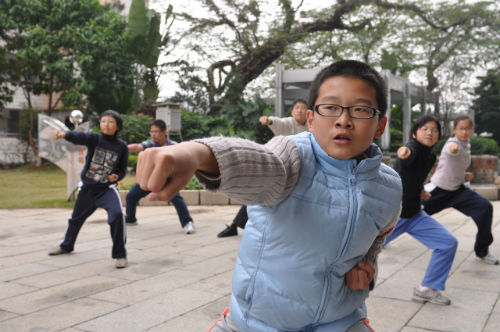
Is there a current plan of action to change China’s inequality in education?
جی ہاں. Chinese President Xi Jinping gave a speech in September calling for China to emphasize creativity in the classrooms or risk being left behind economically. His first major emphasis is on building a more equitable education system. This makes sense because the gap between the have’s and the have-not’s has only widened, and for the sake of domestic stability, Xi Jinping has to attempt to address this gap through multiple channels. So he would like to see more education resources transferred from the rich coastal provinces to the hinterland, and see more students from the countryside enroll in elite urban universities. عام طور پر, this is a good sound policy that has wide support – but it’s still unclear how it would be implemented, if it can be at all.
What would be your steps towards reducing inequality in education?
سب سے پہلے, creating an early childhood program (for children as young as 8 months old) modeled on those found in Finland and Russia, where the poorest children are offered daycare to address gaps and deficiencies in nutrition, خواندگی, and emotional security that together determine failure or success in life.
دوسرا, investing heavily in vocational programs to offer students practical employable skills, while filling China’s shortage of electricians, carpenters, and other skilled tradesmen.
تیسری, کمیونٹی کالجوں اور مسلسل تعلیم کے پروگرام کا ایک قومی نظام کی تعمیر ملازمین کو ان کی مہارت کی سیٹ اپ گریڈ کرنے اور یونیورسٹی ڈگری کی طرف کام میں مدد کے لئے.

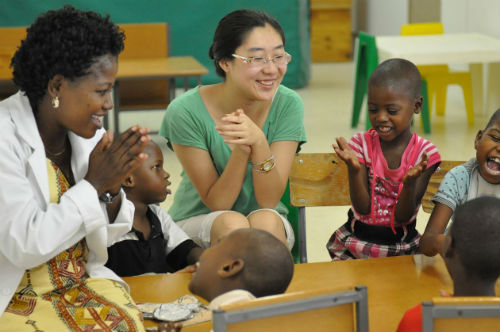
تم کس طرح اساتذہ اور اسکول کے منتظمین ہونے کے لئے بہترین اور ذہین طلباء کو بھرتی کرتے ہیں?
میں ان 2001 کتاب, تخلیقی کلاس کی تعداد میں اضافہ, Richard Florida surveyed thousands of America’s 30 million creative professionals and discovered that their job satisfaction was not based on salary, prestige, and location – but on the opportunity to work on challenging projects with high-achieving people from different backgrounds. چین تعلیم کے شعبے میں اپنے بہترین اور ذہین بھرتی کرنے کے لئے ہے، تو, یہ اساتذہ خود مختاری کی پیشکش کرنے کی ضرورت ہے, وسائل, and the respect in order to do their job right. And that means breaking up the monolithic socialist bureaucracy that is China’s education system, and empowering local schools to experiment and develop a curriculum and system that’s appropriate for their local needs and circumstances.
اس کے علاوہ, since Chinese love propaganda campaigns, why not launch a campaign to extol the heroic selfless patriotism of teachers, thereby reassuring teachers that reform will not result in any job loss? The campaign ought to emphasize that reform is about empowering teachers to have more of a say in their own classroom.
What changes should be made to make curriculum more relevant?
میرا ترجیحی حل اساتذہ کا ہونا ہے اور طالب علموں کو ان کے ہم جماعتوں کی زندگی میں اور ان کی کمیونٹی کا براہ راست اثر پڑتا ہے کہ منصوبوں میں مشغول. اس کے بجائے طالب علموں کو حیاتیات میں علیحدہ اور الگ تدریس کی پیشکش کی, کیمسٹری, ماحولیات, جغرافیہ, غذائیت, کھانے کی حفاظت, اور ماحولیاتی تحفظ, کیوں رہنما کے طور پر اساتذہ کے ساتھ طالب علموں کی طرف سے کے زیر انتظام ایک نامیاتی فارم میں اسکول کے صحن باری نہیں? اور اس کے بعد طالب علموں کو اس فارم سے پیداوار کا استعمال کرتے ہوئے اسکول کمیونٹی کے لئے غذائیت سے بھرپور صحت مند کھانا تیار ہے?
اپنی کتاب میں, تعلیم کا اختتام, امریکی ثقافتی ناقد نیل ڈاکیا طالب علموں کو اسکول سے جدا کہ دلیل دی اور “موت کی خود کو تفریح” کیا وہ اسکول میں سیکھنے کو متعلقہ اور نہ ہی با معنی نہ ہے کیونکہ; طالب علموں کو دوبارہ شامل کرنے کے لئے, ہم انہیں وہ سیکھنے آئے اس پر ان کی کمیونٹی میں ایک اثر کے ساتھ ساتھ ایک کا کہنا ہے دو کرنے کی ضرورت. مجھے مزید اس کے جذبات کے ساتھ اتفاق نہیں کر سکے.

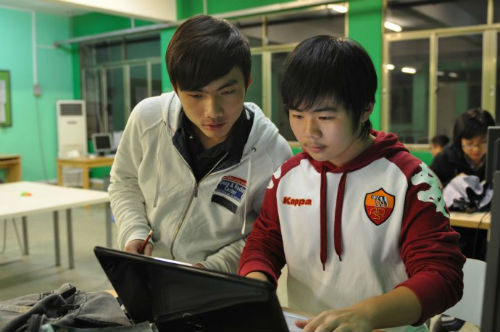
What do you think is the most pressing problem in Chinese education today?
As an educator, what worries me most is the unprecedented level of adult involvement in the lives of children. Both in China and in America, والدین – especially the well-educated, well-meaning, and wealthy ones – plan and supervise every minute of their child’s life; اسی دوران, schools give students more homework and try to cram more material into classroom instruction. These trends are unhealthy, and lead to mass parental neurosis and widespread student apathy. کبھی کبھی, I think that teens like Suzanne Collins’ Hunger Games trilogy because it’s a perfect metaphor for how adults entertain themselves by making children compete against each other.
Education leaders must respect the sacred space that is childhood, and the sacred bond between teachers and students. The chaotic, گندا, اور بچپن ہے کہ نامیاتی عمل ہمارے دماغ بالغ کے طور پر تجسس اور تخلیقی خطرہ خریدار بننا عصبی وائرنگ تیار کرنے کے لئے کی اجازت دیتا ہے. علم کی ترسیل کرنے اور برقرار رکھنے کے مقابلے میں زیادہ, ایک محفوظ اور محفوظ ماحول میں بچوں سکتے ہیں یا گھر کے باہر ایک خود کی شناخت کو دریافت جہاں کلاس روم ہے, کام کرتے ہیں اور ان کے ساتھیوں کے ساتھ کھیلنے کے لئے سماجی مہارت کی ترقی, اور اتھارٹی کے ساتھ تعمیری تعلقات گفت و شنید. اساتذہ کا پہلا اور سب نگران ہیں, اور تعلیم کے رہنماؤں اکیلے اساتذہ چھوڑ دیں تو, they’ll love and take care of the children under their care. But if education leaders impose performance standards, evaluation metrics, and testing goals, then teachers’ utilitarian instincts take over, and schools can become toxic environments in which to work.
In my experience as an administrator, I feel it is much more constructive and difficult to do less than to do more. It is emotionally taxing to trust students and teachers, and to let them just engage in the messy, chaotic, and organic process that is learning. It strokes the ego more to give speeches, hold curriculum meetings, and promulgate reform slogans. It seems that Chinese administrators are all for creativity, as long as they can control and dictate what students create – and it’s okay for students to make mistakes as long as they are the right kinds of mistakes.
یہ زبردست جذباتی انٹیلی جنس کی ضرورت, خود تفہیم, حکمت, پختگی, غیر اندازہ حمایت اور حوصلہ افزائی کی پیشکش کرتے ہوئے اور اعتماد ایک کم سے کم مداخلت رویہ برقرار رکھنے کے لئے. اساتذہ اور طالب علموں کو کسی بھی عظیم اسکول کے حقیقی ستارے ہیں, and real education leadership means playing a backstage and supporting role.
مزید معلومات کے لئے تخلیقی چین

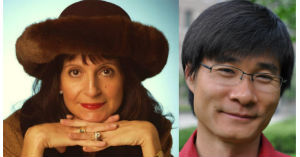
Photos are courtesy of Jiang Xueqin.
سر مائیکل باربر سمیت میرے ساتھ اور عالمی سطح پر معروف فکری رہنماؤں (برطانیہ), ڈاکٹر. مائیکل بلاک (امریکہ), ڈاکٹر. لیون Botstein (امریکہ), پروفیسر مٹی Christensen کے (امریکہ), ڈاکٹر. لنڈا ڈارلنگ-ہیمنڈ (امریکہ), ڈاکٹر. MadhavChavan (بھارت), پروفیسر مائیکل Fullan (کینیڈا), پروفیسر ہاورڈ گارڈنر (امریکہ), پروفیسر اینڈی Hargreaves نے (امریکہ), پروفیسر کریں Yvonne ہلمین (نیدرلینڈ), پروفیسر کرسٹن Helstad (ناروے), جین Hendrickson نے (امریکہ), پروفیسر گلاب Hipkins (نیوزی لینڈ), پروفیسر Cornelia Hoogland (کینیڈا), فاضل جیف جانسن (کینیڈا), مسز. چینٹل کوفمین (بیلجیم), ڈاکٹر. EijaKauppinen (فن لینڈ), سٹیٹ سیکرٹری TapioKosunen (فن لینڈ), پروفیسر ڈومینک Lafontaine (بیلجیم), پروفیسر ہیو Lauder (برطانیہ), پروفیسر بین لیون (کینیڈا), رب کین میکڈونلڈ (برطانیہ), پروفیسر بیری McGaw (آسٹریلیا), شیو ندار (بھارت), پروفیسر R. نٹراجن (بھارت), ڈاکٹر. PAK NG (سنگاپور), ڈاکٹر. ڈینس پوپ (امریکہ), شریدر رازگوپالن (بھارت), ڈاکٹر. ڈیانے Ravitch (امریکہ), رچرڈ ولسن ریلی (امریکہ), سر کین رابنسن (برطانیہ), پروفیسر PasiSahlberg (فن لینڈ), پروفیسر Manabu ساتو (جاپان), Andreas کی Schleicher (پیسا, او ای سی ڈی), ڈاکٹر. انتھونی Seldon نے (برطانیہ), ڈاکٹر. ڈیوڈ Shaffer کے (امریکہ), ڈاکٹر. کرسٹن عمیق کر رہے ہیں (ناروے), چانسلر اسٹیفن Spahn (امریکہ), ایوز Theze (LyceeFrancais امریکہ), پروفیسر چارلس Ungerleider (کینیڈا), پروفیسر ٹونی ویگنر (امریکہ), سر ڈیوڈ واٹسن (برطانیہ), پروفیسر Dylan کے Wiliam (برطانیہ), ڈاکٹر. مارک Wormald (برطانیہ), پروفیسر تیو Wubbels (نیدرلینڈ), پروفیسر مائیکل نوجوان (برطانیہ), اور پروفیسر Minxuan جانگ (چین) وہ تمام اقوام کو آج سامنا ہے کہ بڑی تصویر تعلیم سوالات دریافت کے طور پر.
تعلیم کمیونٹی پیج کے لئے گلوبل تلاش
C. M. روبن وہ ایک موصول ہوئی ہے جس کے لئے دو بڑے پیمانے پر پڑھا سیریز کے مصنف ہے 2011 میں Upton سنکلیئر ایوارڈ, “تعلیم کے لئے گلوبل تلاش” اور “کس طرح پڑھیں گے?” انہوں نے تین bestselling کتابوں کے مصنف ہیں, سمیت Wonderland میں یلس اصلی, کے ناشر ہے CMRubinWorld, اور ایک Disruptor فاؤنڈیشن فیلو.


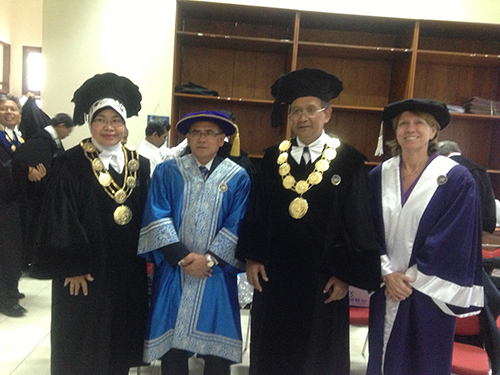
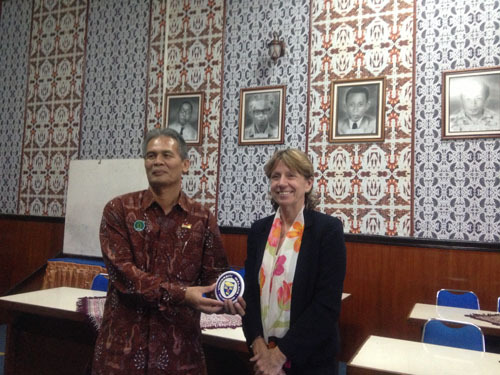

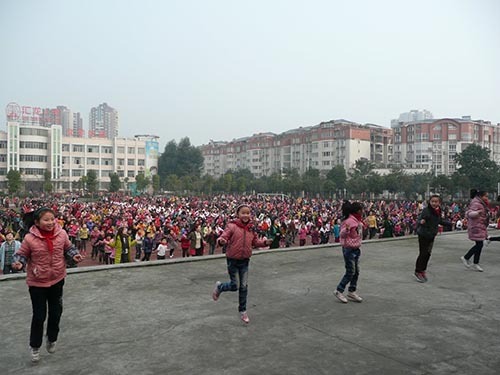
حالیہ تبصرے